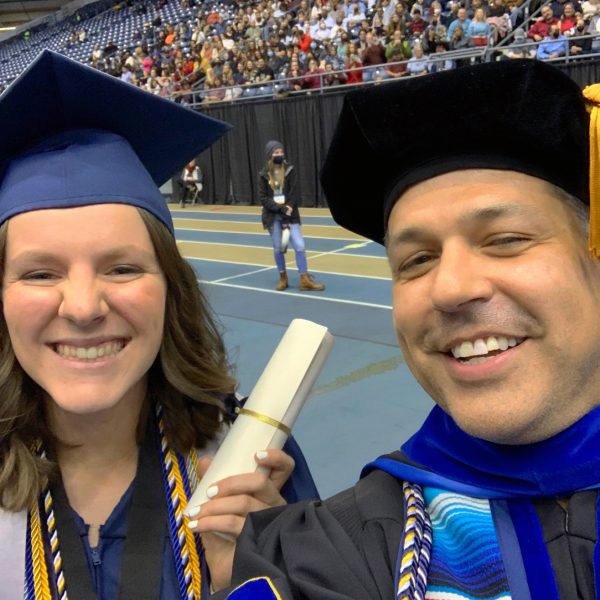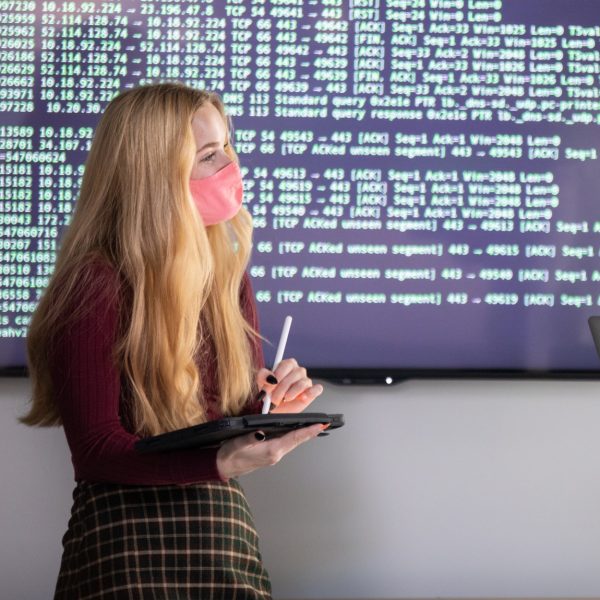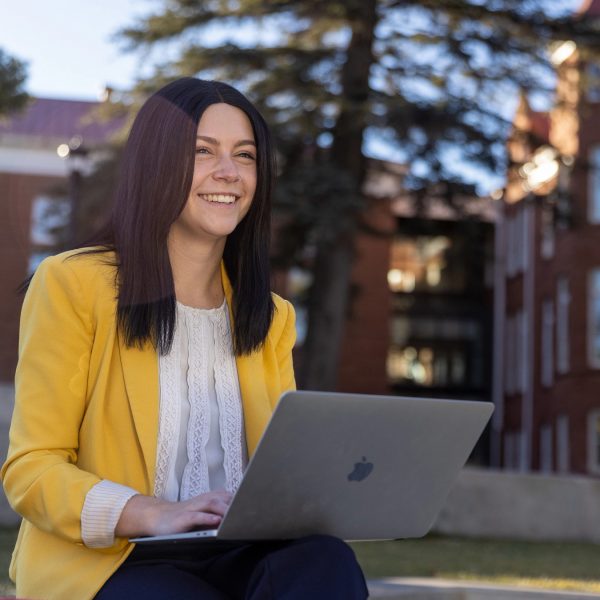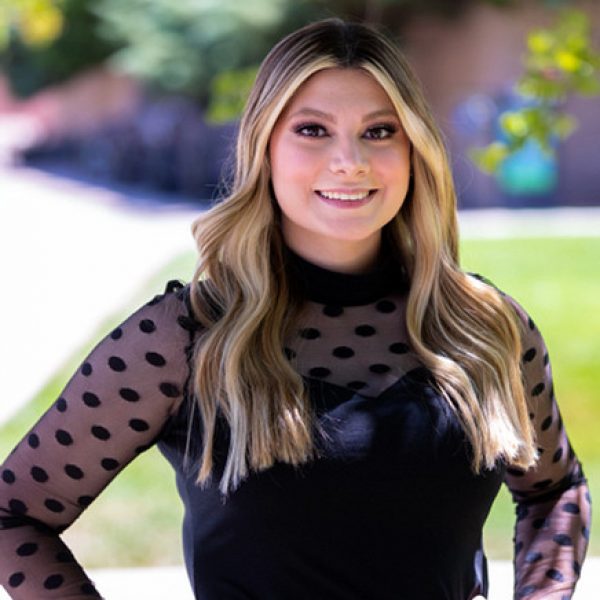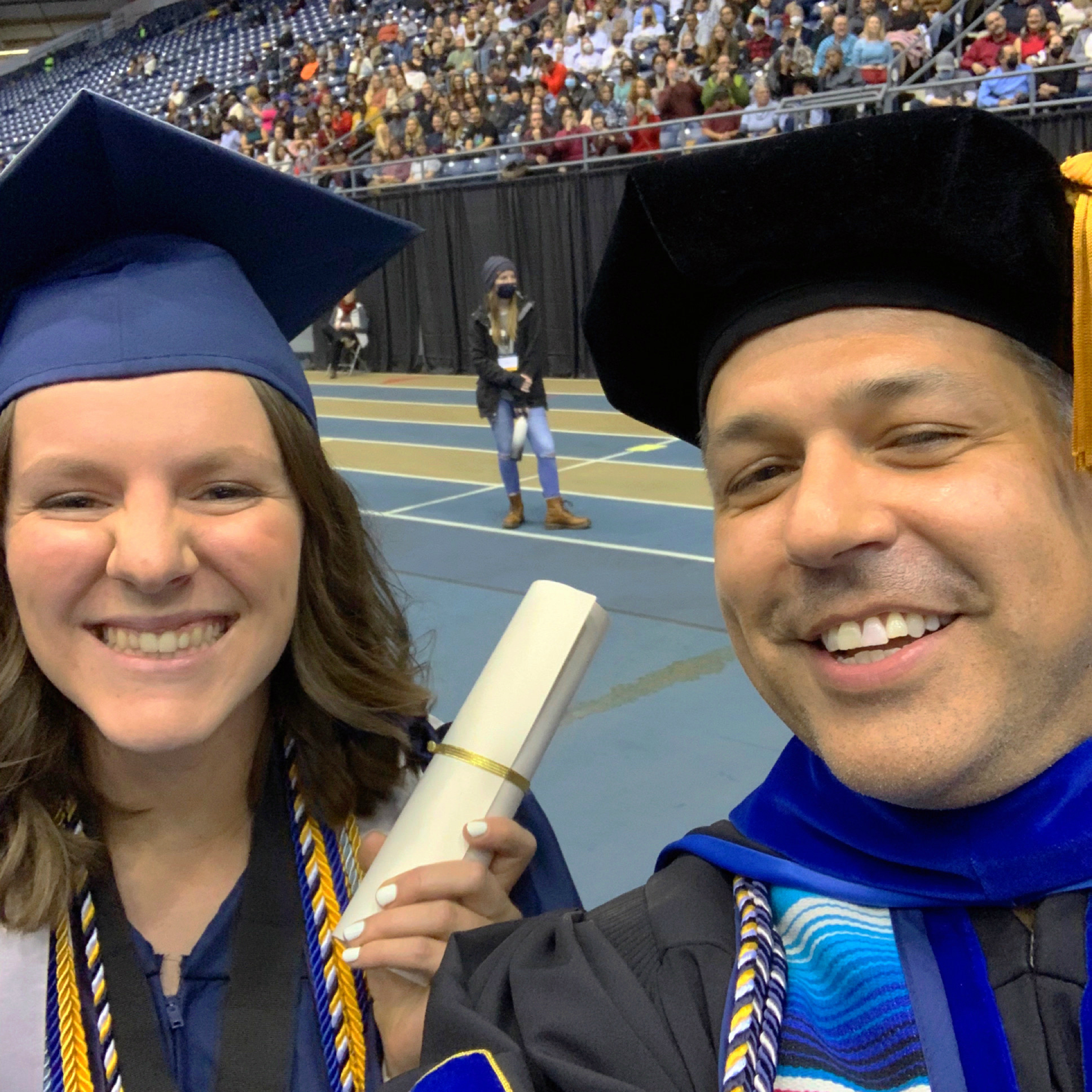
Student Lizy Martinez and professor T. Mark Montoya use research to explore learning barriers for first-generation students.
The experience of a first-generation college student can be daunting. At NAU, Honors student Lizy Martinez and Ethnic Studies Director and Associate Professor T. Mark Montoya—both first-generation students themselves—use their research to explore and break down some of the barriers these students face each day.
First-generation college students, at NAU and elsewhere, face challenges on campus that are often invisible. Without the foundation of prior college experience through family members, the behavior, common vernacular, and expectations for students can be foreign or intimidating. As Martinez puts it, “It is still really unnerving to walk into college and have no understanding of what it really is, at least through your family.”
A Psychology major, Martinez utilized her insight as a first-generation student in the research project she presented at the Honors Symposium, titled “Internships and Impostor Syndrome Within First-Generation College Students.”
The project explored the disparity between the college experiences of first- versus continuing-education students. One example included the difference in how students utilize campus services such as academic advising, health services, and financial aid, which leads to first-generation students being underserved in certain critical areas due to a lack of communication or unfamiliarity with the services. Martinez also discussed how higher education places an emphasis on independence, while many first-generation students come from cultural backgrounds that value community and interdependence. Additionally, she used her experiences of imposter syndrome to discuss the emotional aspect of the first-generation journey and explain its often very personal difficulties.
Through her work, she hopes to impart a message to other first-generation students: “I think that it’s important to think about what others can hear from you and what you have to say. And that can be a really non-intuitive lesson for a lot of us, because I know it’s easy to think that only other people deserve the spotlight.”
Another important element in Martinez’s college experience was her internship with professor Montoya, which culminated in the peer-reviewed paper “Interns-to-Scholars: First-Generation Success Beyond the Classroom,” on which they are joint authors.
The paper is written in the style of an interview, and follows the thoughts and actions of a student, faculty member, and narrator (the latter of whom exists as a figment of the others’ imaginations) as they discuss first-generation student success, personal hopes, expectations, and initial concerns about the internship, and what it means to undergo the personally unique journey of university student life.
“If I hadn’t had this internship with Dr. Montoya, I think I would still be too scared to even send a professor an email,” says Martinez, speaking about the benefits that mentoring, internships, and other student–faculty relationships can have for first-generation students.
If faculty can find ways to make themselves more approachable to students, that can make a world of difference.
– Lizy Martinez, Honors Psychology major
She hopes that through the publication, “faculty will take away the idea that there is a barrier between faculty and students. That’s not just with first-gen, but I think especially with first-gen students. Particularly early on (in freshman and sophomore year), if faculty can find ways to make themselves more approachable to students, that can make a world of difference, not just in their own class but in the student’s future classes throughout their career.”
Montoya echoes this sentiment, noting that, “What I’m seeing in my work is that sometimes first-generation students are not perceiving the challenges they have as anything other than normal, because first-generation college students aren’t coming with what we call ‘social and cultural capital’: the understanding of the particular system that is the academy, that is the university, that is academia.”
Montoya suggests that educators must consider the potential for this knowledge gap when working with students. “It should allow us, as teachers, whether we’re first-gen or not, to understand that what we’re doing to connect with where first-gen students are coming from is really to rethink how we promote the academy to college students. In other words, we have to be aware of the jargon we use. We have to be aware of the processes that we call ‘the academy,’ as well.”
Some examples: “What do ‘office hours’ mean? What’s a syllabus? What do we mean when we say, ‘read the textbook?’ It can be very simple, but what exactly do we mean by this?”
Group dynamics within the university environment can lead to additional complications. “We have, for example, a lot of Latinx students who have a sense of belonging when they’re part of the smaller Latinx Student Union or whatever affinity group they might be a part of,” says Montoya, “but who still don’t feel like they belong in the overall system of the university.”
Despite the continuing efforts needed to foster inclusivity, Montoya highlights the support that NAU currently provides to first-generation students. “Folks are really working hard in IMQ, the inclusion office, student support services, first-gen offices, and elsewhere. It’s just that it’s not always seen.”
Montoya examines the concept of borderlands in his research, both the physical (between the US and Mexico), and intangible (for example, concepts of identity).
“What I’ve been looking at lately is the first-generation college experience as a borderlands experience—to look at how folks are navigating multiple borderlands in their everyday lives, whether they be class-based, gender-based, race- or ethnicity-based, or otherwise.”
Montoya studies the unique challenges facing students experiencing borderlands in their lives, and ultimately hopes to foster awareness and inclusivity for all groups and personal identities among NAU students.
“It’s understanding that language is fluid. Identities are fluid. And education and this academy, itself, ought to allow for this fluidity, so that we can learn and grow together.”

